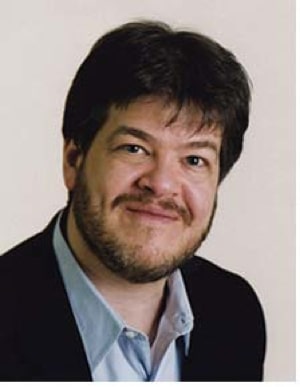Not to let himself be outdone by his skeptic colleague in good standing, George Will, The Boston Globe’s Jeff Jacoby has penned an equally vacuous and misinformed column posing the thought-provoking question: “Where’s global warming?”
It’s hard to know where to start. From the outset, I was tempted to just rehash my previous post about “global cooling” and climate variability or to mine Mitchell’s George Will debunking posts for some good material. (This line, in particular, answers his question rather well: “In other words: if you want to see climate change, look out the window.”) In light of some of his other claims about global temperatures and Arctic sea ice, however, I thought I’d do some of my own snooping.
First, to give Jacoby his due, he is correct in stating that 2008 was the coolest year of the past decade and that the National Snow and Ice Data Center (NSIDC) acknowledged a few weeks ago that an error in one of its satellite sensors had caused it to underestimate the extent of Arctic sea ice by 193,000 square miles (500,000 square kilometers) by mid-February. And, yes, Kyle Swanson and Anastasios Tsonis did note in their study that the recent cooling period appeared “unprecedented over the instrumental period.”
Jacoby’s problem, and that of his fellow know-nothings, is that he never elaborates on these points. Take the NSIDC data. While he doesn’t state it explicitly, Jacoby’s intent in citing the error is to generally cast doubt on the reliability of satellites and other climate monitoring technologies.
It’s certainly true that these advanced devices occasionally malfunction, which is why scientists regularly verify their progress, but, on the whole, they are very good at what they do. And though 500,000 square kilometers is not an insignificant figure, it bears repeating that the total Arctic sea ice extent for the month of February was 14.8 million square kilometers.
Nor did the error significantly affect the accuracy of NSIDC’s time series numbers, as Bill Chapman, a University of Illinois climate scientist explained to The Loom’s Carl Zimmer:
“As one check, we have been comparing our time series with those from the independent data source AMSR-E. They are just about identical so we are comfortable that our time series remain solid. Our time series and therefore the statement are unaffected by the recent satellite problems. If the sensor degrades a lot more, our numbers will be affected, but to date, they are not.”
More important, unlike its critics, the NSDIC quickly recognized its error and released a detailed analysis explaining how the satellite sensor had erred and what its impact on the data was. Another critical point that the deniers ignore: This type of near-real-time data never makes its way into the peer-reviewed literature and therefore has no bearing on the validity of past and current studies. As the analysis notes:
“As discussed above, near-real-time products do not undergo the same level of quality control as the final archived products, which are used in scientific research published in peer-reviewed journals.”
Jacoby’s claim that 2008 was the coolest year of the past decade also misses the point and perfectly illustrates deniers’ tendency to cherry pick the data. As both Joe Romm and Greenfyre’s Mike Kaulbars have pointed out, 2008 also happened to be the tenth hottest year on record.
Indeed, Jacoby’s point seems even more irrelevant when you consider that this has been the hottest decade to date so far according to NASA, the World Meteorological Organization (WMO) and the Hadley Center. Moreover, the six warmest years in NASA’s record have all fallen within the last decade, and, as all scientists agree, global mean temperatures have been steadily increasing over the last 150 years.
The warmest year to date did occur in 1998, but that was largely due to the disproportionate influence of the El Niño – Southern Oscillation (ENSO) signal, as RealClimate’s Gavin Schmidt noted last year.
Removing the signal, as Gavin did, tells a slightly different story:
“The basic picture over the long term doesn’t change. The trends over the last 30 years remain though the interannual variability is slightly reduced (as you’d expect). The magnitude of the adjustment varies between +/-0.25ºC. You can more clearly see the impacts of the volcanoes (Agung: 1963, El Chichon: 1982, Pinatubo: 1991). Over the short term though, it does make a difference. Notably, the extreme warmth in 1998 is somewhat subdued, as is last winter’s coolness. The warmest year designation (now in the absence of a strong El Niño) is more clearly seen to be 2005 (in GISTEMP) or either 2005 or 2001 (in HadCRUT3v). This last decade is still the warmest decade in the record, and the top 8 or 10 years (depending on the data source) are all in the last 10 years!”
Jacoby’s complaint that the mainstream media has largely ignored the “recent cold phenomena” is hogwash, of course. As Joe and others have noted, it has actually been quite the contrary, with even The New York Times and The Guardian reporting on the “unprecedented” cooling.
He ends the column on this conciliatory note: “Dogma and zealotry have their virtues, no doubt. But if we want to understand where global warming has gone, those aren’t the tools we need.” Good advice, Jeff. Now follow it.
Subscribe to our newsletter
Stay up to date with DeSmog news and alerts






